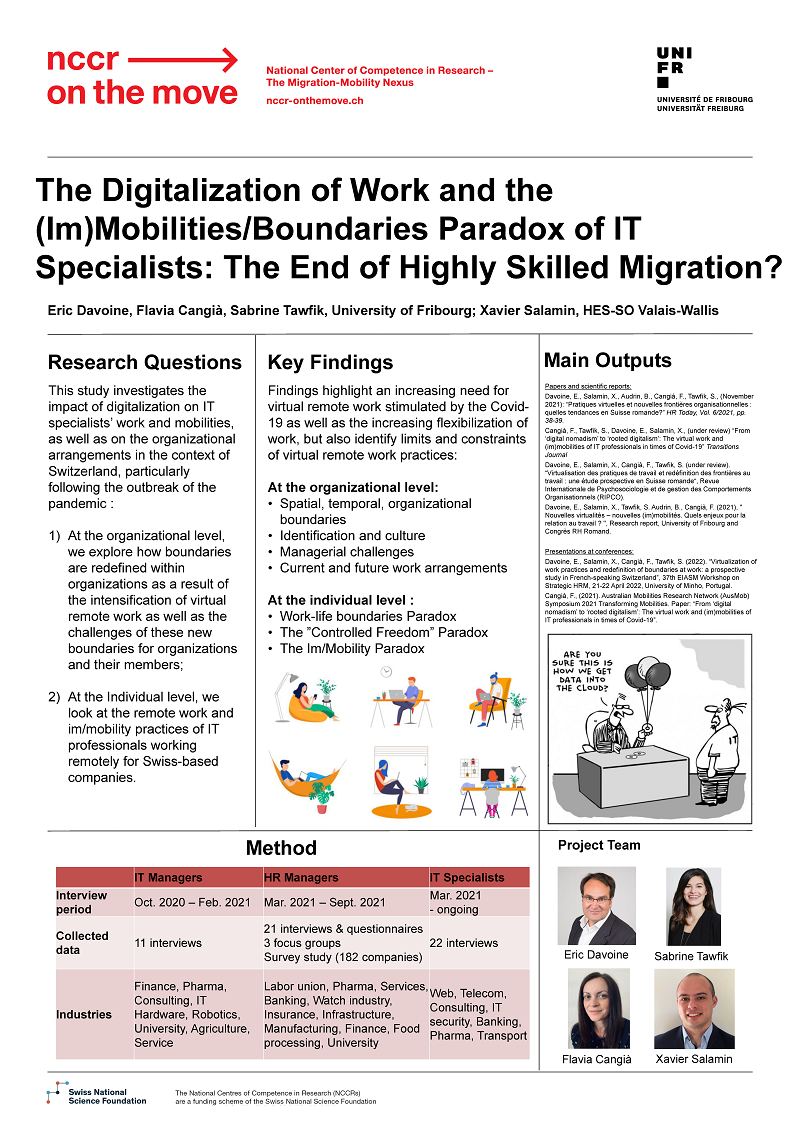Eric Davoine
The Digitalization of Work and the (Im)Mobilities/Boundaries Paradox of IT Specialists: The End of Highly Skilled Migration?
Project Summary
With the shift to knowledge-based economies and the dominance of the service sector in developed economies, there has been a growing need for companies to hire ‘knowledge workers’ in increasingly complex roles. Particularly, IT professionals might often engage in international mobility for work. At the same time, the digitalization of work now makes employment more location independent, challenging the traditional understanding of labor and migration, and the work-life boundaries.
In this project, we examine the paradoxical tensions in the experiences of (im)mobilities and boundaries for IT professionals engaged in transnational work within Swiss companies, particularly in the context of the COVID-19 pandemic and its aftermath. We ask how these tensions shape their transnational (im)mobile work experiences, and how new corporate practices and policies respond to these tensions. Understanding organizational perspectives and practices in combination with individual experiences of digital work is crucial to exploring the future and the potential decline of highly skilled migration.
Scientific Poster 2022 (PDF)
Key Findings:
- Findings highlight an increasing need for virtual remote work stimulated by the COVID-19 as well as the increasing flexibilization of work, but also identify limits and constraints of virtual remote work practices.
- At the organizational level, these limits and constraints are spatial, temporal, and depend on organizational boundaries, identification and culture, managerial challenges, as well as current and future work arrangements.
- At the individual level, these limits are related to the work-life boundaries paradox, the ‘controlled freedom’ paradox, and the im/mobility paradox.
Project-related scientific publications


